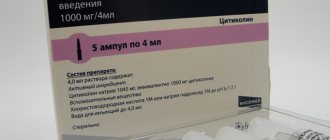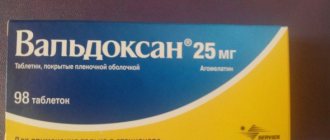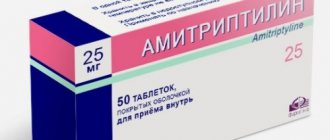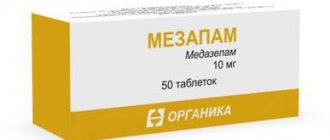A blood product with metabolic action, as Actovegin’s instructions for use describe it. It is capable of having an antihypoxic effect. It is made from the blood of dairy calves by dialysis and ultrafiltration. In order to make the drug suitable for human use, manufacturers have to remove all proteins from it.
The result is a hemoderivat, which is a means that affects the utilization of oxygen, its absorption and the oxidation of glucose. The effect of the drug should be expected no later than half an hour after administration. For the drug Actovegin, the price is about 600-1600 rubles per package, depending on the form of release.
Release form, composition and packaging
The medicine is available in several forms. On the domestic pharmaceutical market it is most often found in the form of tablets, ointments or injections. The therapeutic effect of the drug is due to the properties of its main component - hemoderivat. Hemoderivat is isolated from proteins contained in the blood of calves.
Actovegin tablets are yellow-green in color. They are covered with a thin shiny shell. One tablet contains 200 mg of deproteinized hemoderivative of calf blood.
They include the following auxiliary components:
- magnesium stearate;
- talc;
- povidone K90;
- cellulose.
Chemical composition of the shell:
- mountain glycolic wax;
- acacia gum;
- hypromellose phthalate;
- diethyl phthalate;
- quinoline dye (yellow);
- povidone K30;
- talc;
- sucrose;
- titanium dioxide.
The tablets are in a darkened glass bottle, packed in a cardboard box. There are 50 pieces in one bottle.
The ointment is a homogeneous white substance in appearance. 100 g of ointment contains 5 ml of active substance.
It also includes:
- macrogol (400 and 4000);
- cetyl alcohol;
- benzalkonium chloride;
- glyceryl monostearate;
- water.
The ointment is contained inside metal tubes made of aluminum, which can have a capacity of 20, 30, 50 or 100 g. The tube must be placed in a cardboard package.
Solution for injection is a clear liquid with a yellowish tint that does not contain visible particles. One ampoule contains 80, 200 or 400 mg of active substance dissolved in water with the addition of sodium chloride.
The volume of ampoules can be 2, 5 or 10 ml. The fracture line is clearly visible on them. The ampoules are in plastic packaging (5 pieces each). These packages (1 or 5 pieces) are placed in a cardboard box. The package must have a transparent protective sticker with a hologram.
Actovegin is also produced in the form of an infusion solution for droppers, gel and cream.
Drug interactions
“Chemical conflict,” when beneficial drugs taken together come into contact with each other, is dangerous for the human body.
Actovegin, in this case, is relatively safe and is allowed to be taken as part of complex therapy when a person drinks or injects:
- antibiotics;
- anticoagulants;
- hormonal agents;
- vitamins;
- antiviral drugs;
- chemotherapy drugs;
- insulins or tableted glucose-lowering medications (if the patient has diabetes).
Actovegin is simultaneously allowed with all medications - no drug conflict has been recorded in medical practice.
The only minor limitation: you cannot add another product to the infusion bottle. If it is necessary to administer a second medication into a vein, then jet or drip administration is recommended before or after Actovegin is administered. Actovegin can only be diluted with saline or dextrose.
What is it used for?
The drug is prescribed for:
- treatment of peripheral polyneuropathy due to diabetes;
- eliminating the consequences of cerebral hemorrhage during a stroke;
- recovery after stroke caused by ischemic processes;
- treatment of encephalopathies;
- improving tissue regeneration processes after burns of any origin (1-3 degrees);
- treatment of angiopathy;
- improving the condition of patients suffering from radiation neuropathy and having skin lesions as a result of exposure to radiation;
- accelerating the healing of bedsores and trophic ulcers;
- restoration of the normal process of tissue regeneration;
- improving the condition of veins with varicose veins;
- preventing negative consequences that arise from problems with peripheral circulation (venous or arterial).
Be sure to read:
Augmentin: instructions for use for adults and children
Which form of Actovegin is suitable for treating a particular patient depends on the type of pathology (or type of injury) and the severity of symptoms.
Actovegin - indications for use
Different diseases require the administration of different forms of Actovegin. In total, there are three main types of Actovegin, each of which is prescribed for different diseases. In order to better understand the indications, as well as what is best to treat and how, let’s consider them in more detail.
Gel, cream, ointment
The drug in this form is prescribed for the following diseases:
- burns, including sun and chemical burns;
- abrasions, cuts, scratches and cracks in the skin;
- inflammatory diseases of the epidermis and mucous membranes;
- treatment and prevention of bedsores;
- initiation of therapy for weeping ulcers;
- skin reactions to radiation;
- wound treatment before skin transplantation and in the treatment of burn diseases.
Solution for injections, infusion solution
This form of medication should be prescribed in the following situations:
- therapy and prevention for radiation injuries of the epidermis and mucous membranes;
- diabetic polyneuropathy;
- moderate bedsores, ulcers of various origins, burns;
- disorders of the brain, both metabolic and vascular, including ischemic strokes and traumatic brain injuries;
- arterial, vascular and venous peripheral disorders, for example: trophic ulcer, arterial angiopathy.
Actovegin tablets
Oral administration is usually prescribed for the following pathologies:
- diabetic polyneuropathy;
- peripheral disorders of blood vessels, veins and arteries;
- mental and nervous system disorders;
- head injuries, insufficient blood supply to the brain, dementia (in this case, Actovegin is prescribed as a component of complex treatment).
pharmachologic effect
Actovegin helps improve metabolism in damaged tissues of the human body and accelerate their recovery. The hemoderivat contained in the drug has strong antihypoxic properties. It reduces the sensitivity of cells to a lack of oxygen, promoting its effective utilization and improving the absorption of this important element.
The drug improves the flow of energy processes in the body, promoting maximum absorption of glucose.
Due to the cells receiving increased doses of oxygen, the condition of plasma cell membranes improves and the intensity of lactate formation decreases. This improves the condition of tissues with ischemic damage.
Actovegin accelerates oxidative reactions necessary for the normal supply of energy to cells. Laboratory studies confirmed an increase in the concentration of amino acids, phosphocreatine, ADP and ATP.
Since the drug is created on the basis of a physiological component, it is extremely difficult to study its pharmacokinetics after it is in the internal environment of the body. It is only known that injections or a solution for infusion begin to act less than half an hour after administration, and the maximum effect of the medicine is observed after 3 hours.
Effect on the body
The general effect of the drug is that after its use the patient’s hypoxia decreases and energy processes improve.
After taking the medication, a person experiences the following:
- Cell division increases in areas where tissue regeneration is necessary.
- Collagen synthesis is stimulated (necessary for wound healing).
- Damaged vessels are restored, and this improves blood flow to the tissues.
- The ability of cellular structures to function fully with reduced oxygen supply improves.
- The process of glucose absorption at the cellular level is normalized.
The main effect after taking Actovegin occurs in the brain - it is this organ that needs a high supply of oxygen and glucose.
The drug affects not only cerebral structures, it improves the functioning of all tissues. The medication helps with ischemia associated with lack of blood supply in all organs.
Instructions for use
Pills
Actovegin tablets are used to treat neurological pathologies, vascular disorders and diabetic polyneuropathy.
You should take the tablets 3 times a day, 1-2 pieces, with water. The duration of treatment is usually 4-6 weeks.
If they are used for diabetic polyneuropathy, a single dose of the drug is 2-3 tablets, and the duration of therapy reaches 4-5 months.
Ointment
The ointment is used for skin lesions, trophic ulcers and damage to mucous membranes to accelerate tissue healing during the period of their active regeneration. It is used in the final phase of treatment; in the previous stages, Actovegin gel and cream are used sequentially. In case of minor injuries, as well as for the prevention of bedsores and radiation injuries, it is allowed to use the ointment immediately at the initial stage of therapy.
The ointment should be applied to the affected areas in a thin layer twice a day. The duration of this stage of treatment should be at least 12 days.
Injections
When performing the first injection, the patient should inject 2 ml of solution intramuscularly and wait several hours to make sure that the drug is well tolerated and does not cause allergies. If everything is in order, the dose can be increased according to the doctor's prescription.
The contents of the ampoules are introduced into the body intramuscularly, intravenously or intraarterially.
If intramuscular injections are given, a single dose of the drug solution should not exceed 5 ml. If it is necessary to prescribe higher doses of the drug, it is advisable to administer it by drip.
Be sure to read:
Indapamide: instructions for use, drug analogues
On the first day of treatment, the drug is administered intravenously or intra-arterially in an amount of 10-20 ml per day. Starting from the second day and until the end of treatment, a daily dose of 5-10 ml is set (intravenously or intramuscularly).
The dosage of the solution, the schedule and duration of treatment are determined by the doctor depending on the nature of the pathology and the severity of the patient’s condition.
You may be interested in an article about treatment after a stroke with pine cones.
There is also a useful article about ways to restore the body after a micro-stroke.
Here you will learn about the possible causes of constant hand tremors.
Use of the product during pregnancy
Actovegin is often prescribed during pregnancy. In the instructions for the tablets you can find information that thanks to the drug you can even avoid repeated miscarriages, and also confidently save the child. Representatives of the fair sex who suffer from diabetes can confidently take the drug during pregnancy, which will help avoid possible risks in this situation. Moreover, the product performed well in the following situations:
- Fetal abruption;
- Not gestation;
- Fetoplacental insufficiency;
- Disruption of normal blood circulation;
- Hypotrophy.
The fact is that if blood circulation is impaired, the fetus begins to experience an insufficient amount of oxygen, as a result of which this situation leads to negative consequences, including miscarriages. That is why, in the fight against the above diseases, Actovegin injections are prescribed - this information is clearly indicated in the instructions. Also, pharmacists assure that Actovegin tablets can be easily used while expecting a child. Taking the drug is not prohibited during breastfeeding.
The instructions for use in injections indicate that the drug is approved for use by pregnant women, as well as young mothers, provided that it was prescribed by an experienced medical specialist. In this case, the doctor prescribes Actovegin 5, 10 or other options. It all depends on many factors of the disease, symptoms, and the course of the disease.
Contraindications and side effects
Actovegin in the form of a gel, ointment or cream has only one contraindication - hypersensitivity or a tendency to allergic reactions to the components of the drug.
The tablets are also not recommended for use in cases where the patient is diagnosed with:
- heart failure stage 2-3;
- pulmonary edema;
- problems with urine excretion (oliguria, anuria);
- swelling caused by fluid retention in body tissues;
- high blood sugar.
It is also better not to prescribe tablets to women during pregnancy and lactation.
Actovegin in ampoules containing a solution for injection or infusion cannot be used to treat patients:
- having hypersensitivity to any component of the drug;
- those suffering from heart failure in the stage of decompensation;
- who have developed pulmonary edema;
- those suffering from diseases that result in poor urine production;
- with pronounced tissue swelling.
The use of the drug can sometimes cause the following side effects:
- development of an allergic reaction (from skin rash to angioedema and anaphylactic shock);
- violation of digestive functions (heaviness in the abdomen, pain in the stomach, nausea, vomiting, diarrhea);
- reactions from the cardiovascular system (pain in the heart area, increased heart rate, changes in blood pressure, shortness of breath);
- disorders in the functioning of the nervous system (fatigue, dizziness, headaches, agitation, trembling of limbs, sensory disturbances, confusion);
- breathing problems (increased breathing rate, suffocation);
- pain in muscles, bones and joints.
If side effects occur, you should stop treatment and consult your doctor.
Effect on nervous activity
Nootropic drugs, which include Actovegin, improve neuronal function and neuropsychic reactions. But we should not forget about possible negative effects.
People who drive vehicles are recommended to start taking their first medication on weekends and monitor their well-being.
You should consult a doctor if you have:
- dizziness;
- parasthesia;
- weakness;
- pressure surges;
- tremor;
- fainting.
Timely monitoring of your condition will help you avoid accidents or accidents at work. This rule must be observed not only when taking Actovegin for the first time, but also when taking a second course - sometimes a previously well-tolerated medication gives a negative reaction when taken again.
Application for children
Actovegin can be prescribed to children for neurological diseases resulting from fetal hypoxia during a complicated pregnancy or as a result of birth trauma.
If there is minor damage to the central nervous system, a child over 1 year of age is prescribed tablets that should be given to him once a day. In case of more serious pathology, intramuscular or intravenous injections are required.
For newborns and infants under 1 year of age, the drug is prescribed only in the form of injections. They are placed once a day. The dosage is 0.4-0.5 ml per kilogram of weight.
The daily dose of the medicine and the duration of treatment are determined by the doctor taking into account the child’s age, the clinical picture of the disease and its severity. For a child from 1 to 3 years old, the dose of the drug is 0.4-0.5 ml/kg, and for patients from 3 to 6 years old it is 0.25-0.4 ml/kg. Injections are given once a day.
Be sure to read:
Reduxin: instructions for use, drug analogues
Is it possible to give Actovegin injections intramuscularly on your own?
This question worries many patients after they have been prescribed the drug. Let's try to answer the most common questions:
- How to inject Actovegin intramuscularly - dilute it or not - before drawing the medicine into a syringe? No, you do not need to dilute the solution from the ampoule with anything. It is already ready for use, you just need to select it with a needle into the syringe and inject it.
- Is it possible to inject 5 ml of Actovegin intramuscularly at a time? It happens that such a relatively large volume of an ampoule frightens patients. But there is no need to worry. It is possible to make such an injection, you just need to choose a large muscle for the injection. Optimally - gluteus maximus. The injection should be placed in the upper outer region of the buttock, as if it were divided by two intersecting perpendicular lines.
- How often can Actovegin be injected intramuscularly? The attending physician can answer this question based on the clinical picture of each individual patient. As a rule, injections are prescribed daily for 10 or 20 days. The exact duration of the course depends on the diagnosis, health status and individual characteristics of the patient.
- How to give Actovegin intramuscular injections to yourself, on your own? It is quite possible to do this if you have the necessary skills. Many people can successfully administer the injection as skillfully and safely as nurses with years of experience performing such procedures. It is necessary to wipe the injection site with alcohol (where exactly to inject is shown in the figure below), then insert the needle with a sharp movement and, pressing the piston, inject the drug. There should be no pain (except for slight discomfort when inserting a needle from a syringe).
special instructions
Some patients may develop an allergic reaction to the drug, which can lead to anaphylactic shock. To test the immune response to a drug injection, a test injection is given (no more than 2 ml of solution).
During long-term treatment, it is recommended to monitor the water-electrolyte balance of blood plasma.
Actovegin should not be taken during pregnancy or while breastfeeding. If this is still necessary, it is necessary to carefully evaluate and balance the expected benefit for the mother and the possible risk for the child.
It is not recommended to mix the medicine with alcohol, as in this case the treatment will be ineffective.
After opening the ampoule or unsealing the bottle, the drug solution must be used for its intended purpose immediately; it can no longer be stored.
Actovegin price
The cost of Actovegin depends on the form of its release and the country of origin:
- the price for 2 ml of solution for injection (5 ampoules) is 269 rubles (Russia);
- 1122 rubles for 5 ampoules of 10 milliliters each made in Austria;
- 1369 rubles for injection solution of 40 mg, 25 ampoules (Austria);
- Actovegin tablets 200 milligrams, 50 pieces per pack, cost 1,512 rubles, made in Russia.
Prices may vary depending on the pharmacy. In online stores, the cost is usually lower.
Analogs
This drug does not have complete analogues with the same active ingredient. Of the drugs that have similar pharmacological effects, Solcoseryl is considered one of the best. It is presented in the form of ointment, cream and solution for injection.
Among the tablets, we can recommend Curantil and Dipyridamole (for the treatment of vascular diseases), as well as Vero-trimetazidine (prescribed for ischemic brain damage).
For external use, you can use Algofin ointment, which promotes wound healing.
Good analogues of Actovegin in terms of pharmacological properties are Cerebrolysin and Cortexin. They are available in the form of an injection solution and are used for diseases of the central nervous system, improving the absorption of oxygen in nerve cells and metabolic processes in brain tissue.
Actovegin or Mexidol: which is better?
There is no clear answer to the question of which drug is better.
This is explained by differences in pharmacological properties and degree of impact on the body.
Mexidol is a new generation antioxidant that provides the following effect:
- protects brain cells from the harmful effects of toxins;
- improves memory and mental activity in general;
- regulates cholesterol levels in blood plasma;
- has an anticonvulsant effect.
Along with Actovegin, Mexidol improves metabolism and blood circulation in the brain, eliminates oxygen starvation of cells.
Both drugs are often included in complex therapy simultaneously, which allows for maximum treatment results.
Despite the similarity of medicines, their differences are noted:
- Actovegin is incompatible with alcohol, so it is not used to eliminate withdrawal symptoms;
- Mexidol increases resistance to stress;
- in most cases, Actovegin is easily tolerated by patients; Mexidol has an impressive list of side effects and contraindications.
It is impossible to state the complete advantage of one of the remedies under consideration; the choice in any case remains with the attending physician.
Reviews
After I suffered a stroke, the doctor prescribed me Actovegin injections. This medicine really helped me get back on my feet. The course of treatment has not yet been completed, but I am already practically healthy, my paralyzed right arm has almost recovered, I no longer stagger when walking, and my head has become clear. Great medicine!
Sergey Evgenievich, 71 years old, Ryazan
Actovegin helped me cure a burn. Just a couple of days after starting to use the ointment, the skin began to recover, and after 2 weeks the burn no longer bothered me. It’s just that in the first days of treatment, the pain in the damaged area of the skin intensified, but that’s probably how it should be.
Anton, 44 years old, St. Petersburg
Storage Features
Its effectiveness depends on how the medicine is stored. Let's consider what conditions must be met for Actovegin:
- temperature from +5 to +25° C;
- no direct sunlight.
The shelf life of the medicine is 3 years. After the shelf life has expired, the medication cannot be used.
If there are small children in the family, then the medicine must be stored in an inaccessible place. Children, attracted by the appearance of the packaging and the appearance of the tablets, may swallow an increased dose of the medication or get injured while playing with the “beautiful” ampoules.
What to replace
The reason for replacement is that the medicine is not available or the patient cannot afford the medicine. There is a list of names of drugs that are allowed to replace Actovegin.
It includes:
- Mydocalm;
- Mexidol;
- Solcoseryl;
- Cortexin;
- Cerebrolysin.
Of the gels and ointments, the pharmacy can offer:
- Apropol;
- Turmanidze;
- Recedil (available in capsules for external use and in ointment form);
- Methiuracil;
- Vulnuzan.
Each analogue has its own advantages and disadvantages. Before making a replacement, you should consult your doctor. The doctor must select a therapeutic dose and draw up a treatment regimen necessary for the person.









